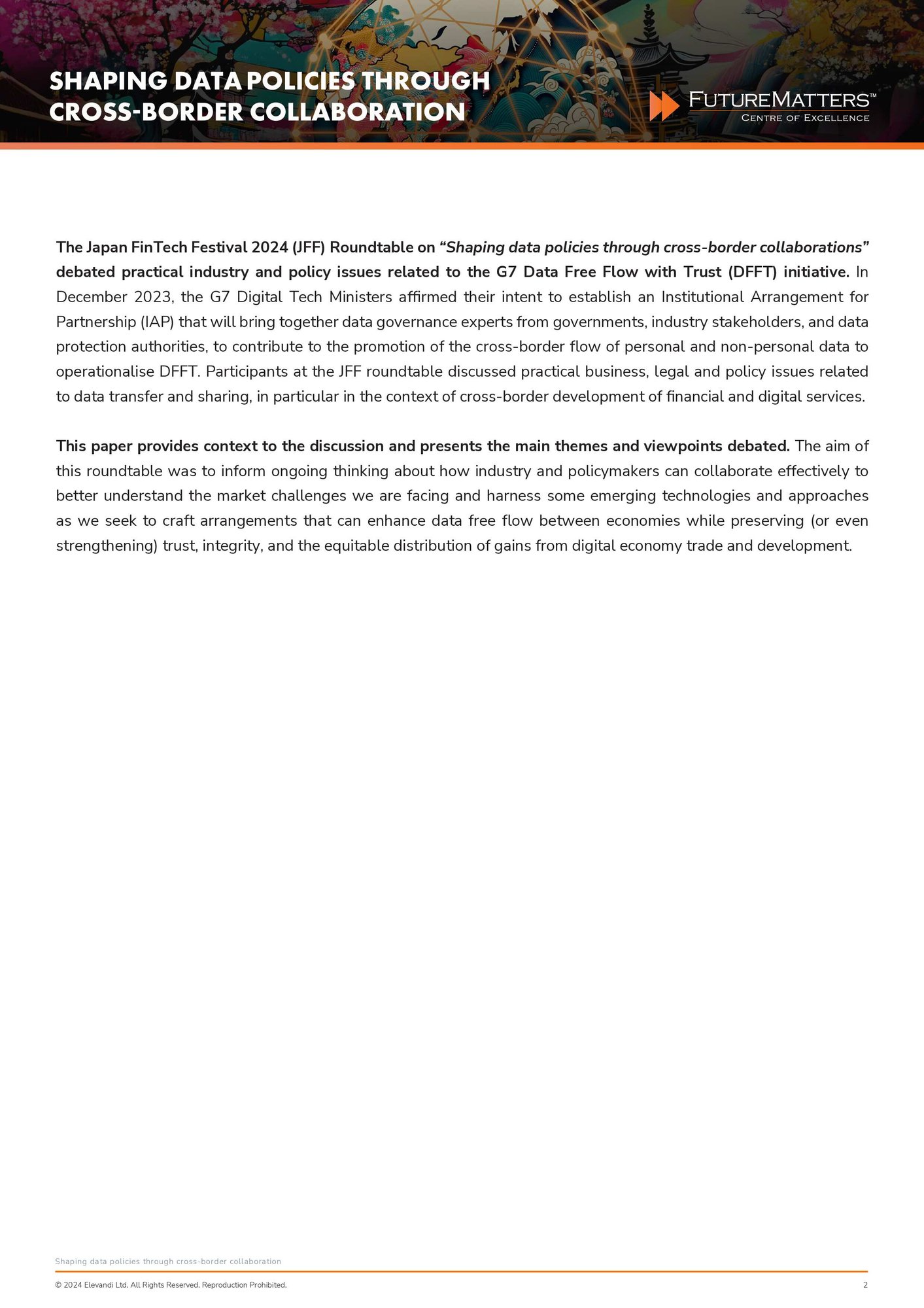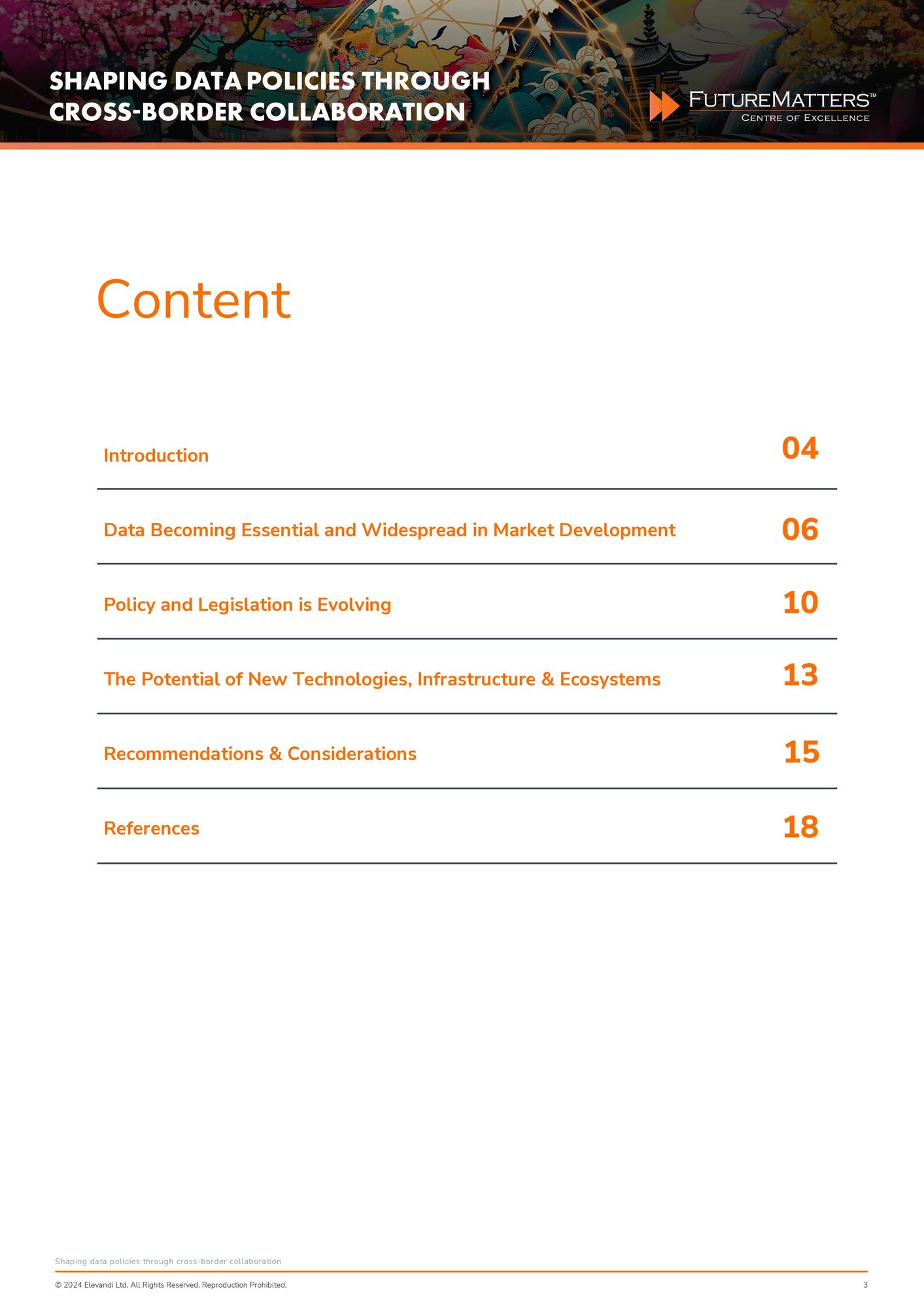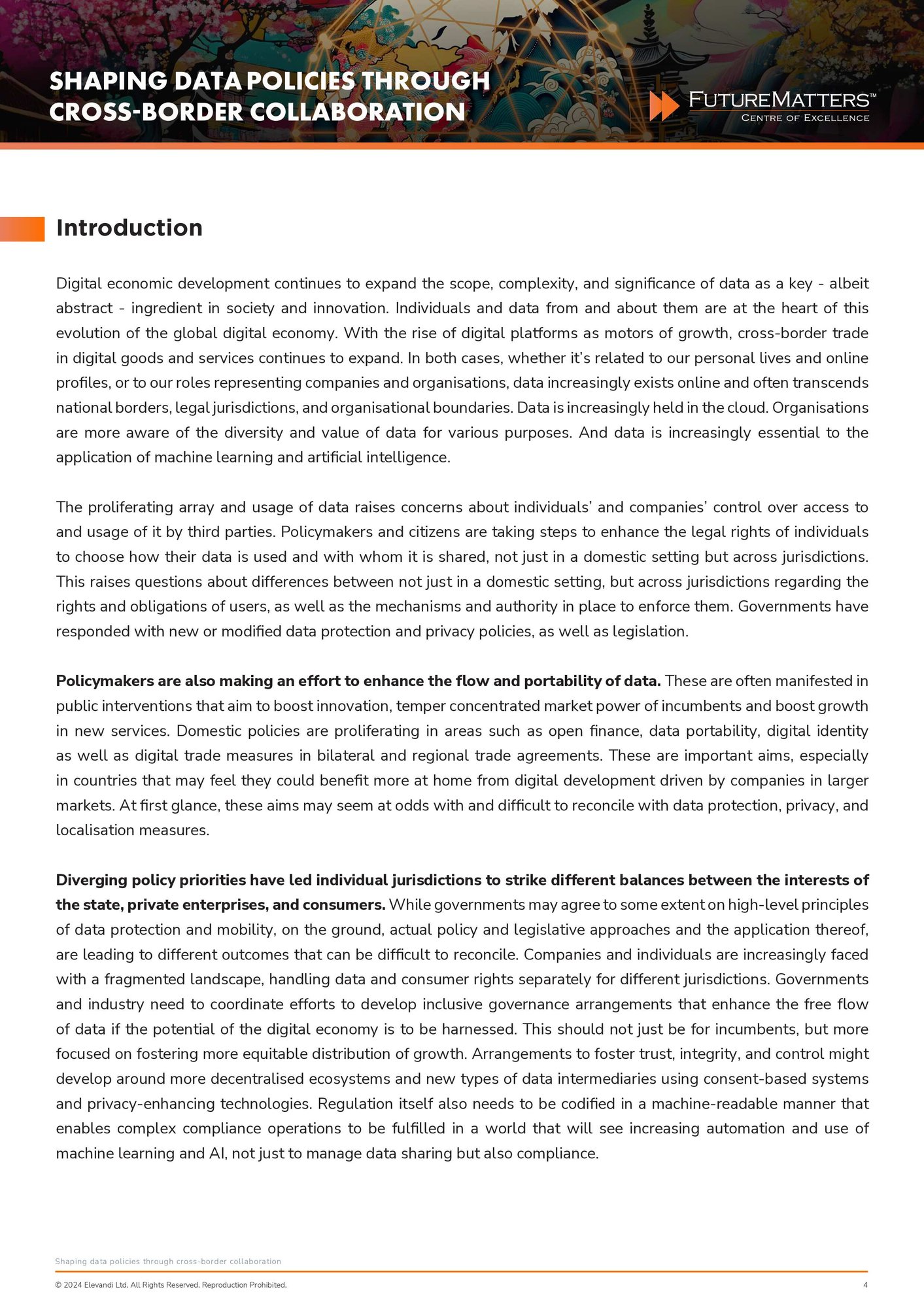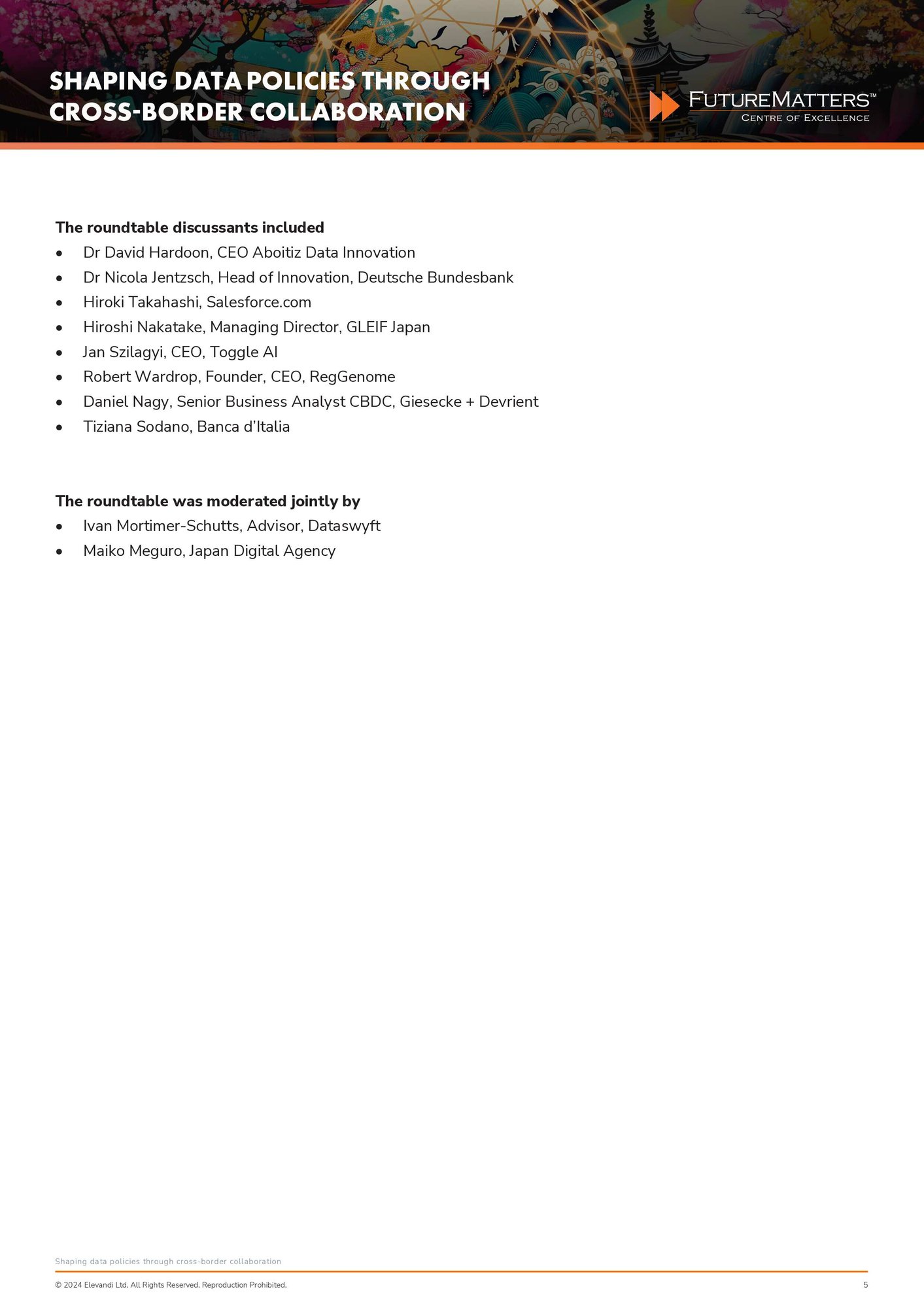Shaping Data Policies Through Cross-Border Collaboration
Written by Ivan Mortimer-Schutts, Advisor, Dataswyft
6 May 2024 - Digital economic development continues to expand the scope, complexity, and significance of data as a key - albeit abstract - ingredient in society and innovation. Individuals and data from and about them are at the heart of this evolution of the global digital economy. With the rise of digital platforms as motors of growth, cross-border trade in digital goods and services continues to expand. In both cases, whether it’s related to our personal lives and online profiles, or to our roles representing companies and organisations, data increasingly exists online and often transcends national borders, legal jurisdictions, and organisational boundaries. Data is increasingly held in the cloud. Organisations are more aware of the diversity and value of data for various purposes. And data is increasingly essential to the application of machine learning and artificial intelligence.
The proliferating array and usage of data raises concerns about individuals’ and companies’ control over access to and usage of it by third parties. Policymakers and citizens are taking steps to enhance the legal rights of individuals to choose how their data is used and with whom it is shared, not just in a domestic setting but across jurisdictions. This raises questions about differences between not just in a domestic setting, but across jurisdictions regarding the rights and obligations of users, as well as the mechanisms and authority in place to enforce them. Governments have responded with new or modified data protection and privacy policies, as well as legislation.
Policymakers are also making an effort to enhance the flow and portability of data. These are often manifested in public interventions that aim to boost innovation, temper concentrated market power of incumbents and boost growth in new services. Domestic policies are proliferating in areas such as open finance, data portability, digital identity as well as digital trade measures in bilateral and regional trade agreements. These are important aims, especially in countries that may feel they could benefit more at home from digital development driven by companies in larger markets. At first glance, these aims may seem at odds with and difficult to reconcile with data protection, privacy, and localisation measures.
FutureMatters is a platform for thought leaders, practitioners, and industry players to share their insights on emerging opportunities and challenges in today's world. Apply to be a contributor here.




